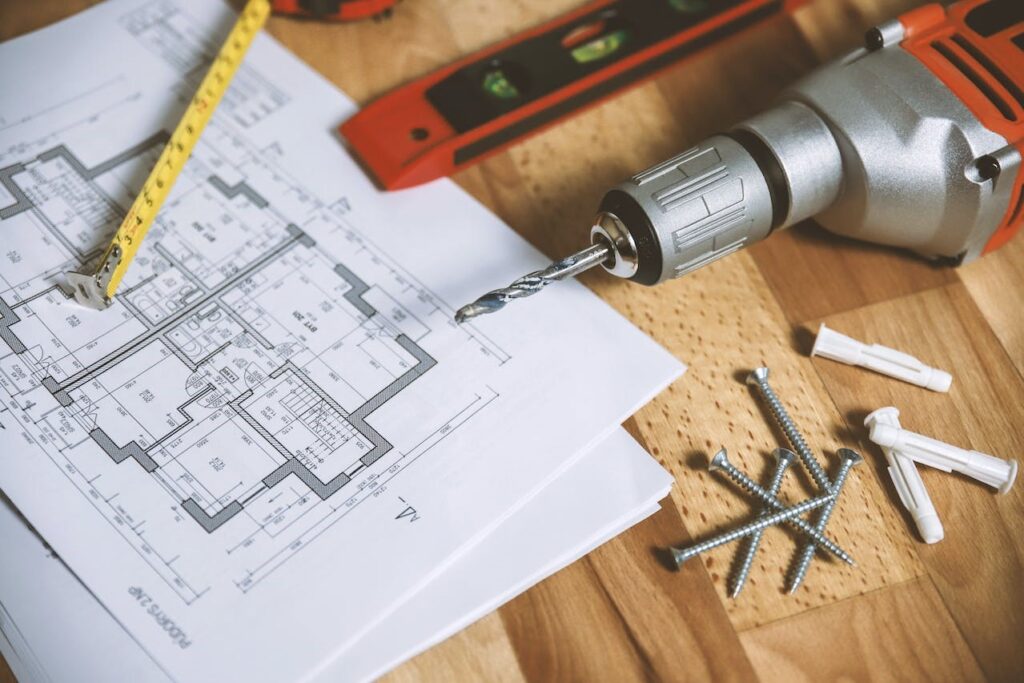Home Renovation Can Be Expensive – Know How to Do It Within Your Budget!

Although home renovation projects are expensive, they should not deter realizing your dream of home improvement. From the planning time, you should be sensitive to the budget and create the development plan to have some room for adjustment. However, the task is far from easy, and there are good chances of overshooting the budget.
To avoid overspending, you should monitor the expenses closely and work closely with the general contractor to devise ways of saving money. The urge to save should help keep the spending under check and avoid exceeding the budget, which often happens due to unexpected costs, disruptions, and delays.
Keep reading to gather ideas about reducing your home renovation costs and even generating savings.
Set a realistic budget
To create a realistic budget for home renovation, you must first create a real improvement plan by focusing on what you need for better living conditions and home aesthetics. Base the renovation tasks on the budget to avoid any stress later. Moreover, it would help if you had some cushion for unexpected expenses that serve as a buffer and allow for stretching.
Budgeting:
Prioritize needs: Identify which renovations are vital for functionality and well-being, and prioritize the ones inside your finances. Cosmetic upgrades can wait if finances are tight.
Get quotes: Ask several contractors for estimates to compare fees and understand average expenses.
Factor in hidden fees: Include permits, waste disposal, unexpected upkeep, and ability value overruns to your finances.
Use budgeting tools: Online calculators and software program let you allocate resources successfully.
Save on the cost of materials
Usually, materials constitute a significant share of the budget, and there is always some easy way to save money when selecting and buying materials. For example, laminated countertops can be an attractive but less expensive alternative to marble countertops, and the same applies to faux wood floors and furniture. Similarly, repurposed furniture looks elegant and charming, and vinyl flooring is a cost-effective alternative to hardwood flooring without compromising aesthetics.
Seek alternative materials: Consider recycled or salvaged materials, in addition to less steeply-priced alternatives like laminate countertops or engineered wood floors.
Shop around: Compare prices at one of a kind shops, each on line and offline. Look for seasonal income and clearance items.
Negotiate bulk reductions: If shopping large quantities, discuss possible reductions with providers or outlets.
DIY in which viable: If you are handy, address some duties yourself to shop on exertions costs. However, be realistic approximately your skill degree and task complexity.
Time your purchases
Start planning your home renovation about a year before commencing the work so that you can avail yourself of the opportunities of seasonal buying or during periods of low demand for better bargains and lower costs. Look around for promotions and discounts, and since you have time, you can avail of lower prices as and when the offers are available. Creating and adjusting your buying strategy by responding to market changes can help save good money.
Plan beforehand: Starting early permits you to display for income and promotions, in addition to negotiate higher offers with contractors.
Research seasonal tendencies: Building materials and home equipment regularly have low season discounts, specifically during iciness or early spring.
Consider lead times: Order substances with sufficient lead time to keep away from delays and capacity charge will increase due to ultimate-minute purchases.
Minimize fixture movements
Minimize the chances of altering the position of some fixtures during a home renovation. Certain built-in fixtures, electrical points, and plumbing are permanent, and trying to change the positions can escalate costs. Modifying these involves skilled professionals and complex adjustments that can considerably increase expenses. Take care of these aspects during planning so you can do so without disturbing the fixtures.
Consult the experts
To make well-informed decisions, consult experts, especially if the project is more significant. When you consult an interior designer, you get ideas about affordable designs and materials that only professionals know. They can suggest efficient design strategies and create work plans to ensure the completion of jobs within the set timelines. The professional guidance of the experts will empower you to operate efficiently by staying aware of the budgetary constraints.
Additional Tips:
Get creative: Upcycling fixtures, using salvaged substances, and DIY initiatives can add specific charm and shop money.
Hire a reputable contractor: A professional and experienced contractor can guide you toward value-powerful solutions and keep away from pricey errors.
Communicate surely: Discuss your budget and priorities overtly along with your contractor to make sure alignment and avoid misunderstandings.
Always speak directly with the experts. You can contact them by phone or drop them an email. Most experts are responsive, and you can expect feedback within 24 hours.


Related Categories
Business
Clothing & Apparel
Digital Marketing
Education
Electronics
Entertainment
Events
Fashion
Finance & Insurance
Flowers & Gifts
Food & Beverage
Games & Toys
Health & Beauty
Home and Garden
Jewelry and Watches
Occasions
Pet
Services
Shopping
Sports And Outdoors
Technology
Travel
Uncategorized
Women's Clothing

